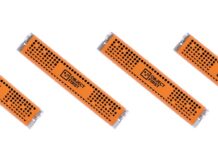As it projected it would back in June, ExaGrid now has over 4,000 customers following what it described as the strongest Q3 in the company’s history.
The company supplies scale-out tiered backup appliances with incoming data being written as-is to a so-called landing zone for quick ingress and retrieval, with later deduplication for longer-term, capacity-efficient retention.
CEO Bill Andrews said: “ExaGrid prides itself on having a highly differentiated product that just works, does what we say it does, is sized properly, is well supported, and just gets the job done. We can back up these claims with our 95 percent net customer retention, NPS score of +81, and the fact that 94 percent of our customers have our Retention Time-Lock for Ransomware Recovery feature turned on, and 99.1 percent of our customers are on our yearly maintenance and support plan.”
This is ExaGrid’s 11th growth quarter in a row with an average 20 percent revenue growth rate. In summary:
- Cash, free cash flow, EBITDA: All positive
- New customers added: 130
- Customer count: >4,000
- 7-figure deals: 2
ExaGrid competes with backup appliance leader PowerProtect from Dell, and other suppliers such as HPE (StoreOnce), Quantum (Dxi), and Veritas (NetBackup Flex). All of these suppliers dedupe on data ingest so have slower data load rates and slower retrieval of new backups as all have to be rehydrated (deduplication reversed).
The company also competes with all-flash, direct-to-object backup stores such as Pure’s FlashBlade, ObjectFirst, and VAST Data. The bulk of its competition is against disk-based Dell, Veritas, HPE, and Quantum, which would need to re-engineer their software to have a deduped “landing zone” for incoming data and global deduplication across a cluster of appliances as ExaGrid has. So far none of them have shown any public sign they plan to do so.
They could go all flash, using QLC SSDs like VAST Data and Pure’s FlashBlade//E, to get extra ingest and restore speed, but then so could ExaGrid, which could also support object (S3) ingest. Competitors such as Dell are incrementally improving their products but, so far, not enough to derail ExaGrid’s progress.









